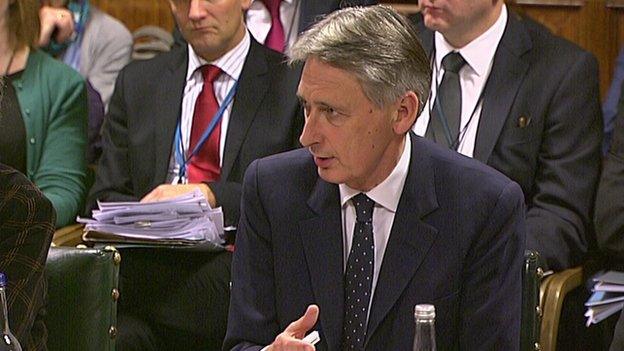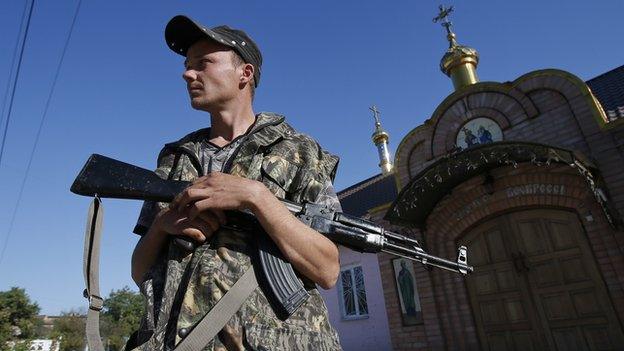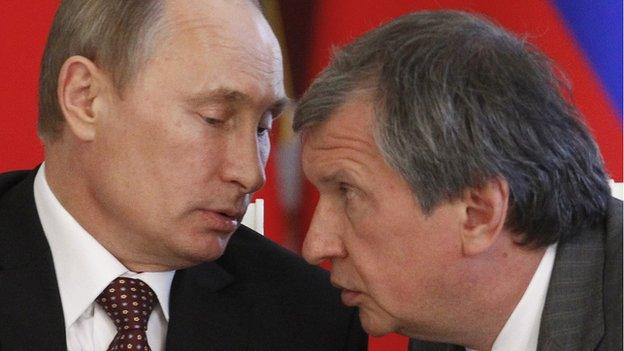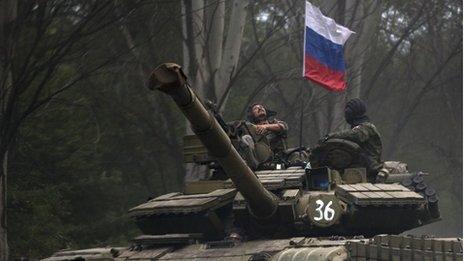Philip Hammond: Russian planes 'probing UK'
- Published

Britain is concerned about the "extremely aggressive probing" of its airspace by Russian aircraft, Foreign Secretary Philip Hammond has said.
He made the remark while being questioned by a Commons committee about arms export licences to Russia.
He told MPs the UK was responding to Russia's role in the Ukraine crisis via EU-wide sanctions.
But the committee chairman said the government's arms policy towards Russia had been "extraordinarily lenient".
Conservative MP Sir John Stanley, who chairs the Committee on Arms Export Controls, external, said he had previously written to Prime Minister David Cameron to raise concerns about 285 existing licences to Russia.
Sir John suggested the government's action was like "shutting the stable door after the arms have bolted".
Mr Hammond said he did not accept this, saying the government had to be "careful not to play all the cards in our hand and leave ourselves in a position where further Russian aggression can't be responded to".
He said the UK was not taking action unilaterally, and stressed the importance of having "solidarity" in the response across Europe.
Last month the Ministry of Defence confirmed jets from RAF Lossiemouth intercepted a Russian Bear bomber as it approached UK airspace on Friday, the second such incident involving aircraft from Vladimir Putin's air force in three days.
Mr Hammond said that while this did concern the government, it did not require a response through arms control licences.
He told MPs that if the criteria were applied inappropriately, the UK would "almost certainly face judicial challenge from companies who felt they had been disadvantaged".
The foreign secretary was also asked about Hong Kong, where police have used tear gas in a clash with pro-democracy protesters.
Mr Hammond said this was believed to be an "isolated incident", but said that if there was evidence the Hong Kong police had used tear gas against peaceful protesters, and that if the gas had been sourced through the UK, then the government would review the licence.
- Published12 September 2014

- Published15 September 2014

- Published23 July 2014
